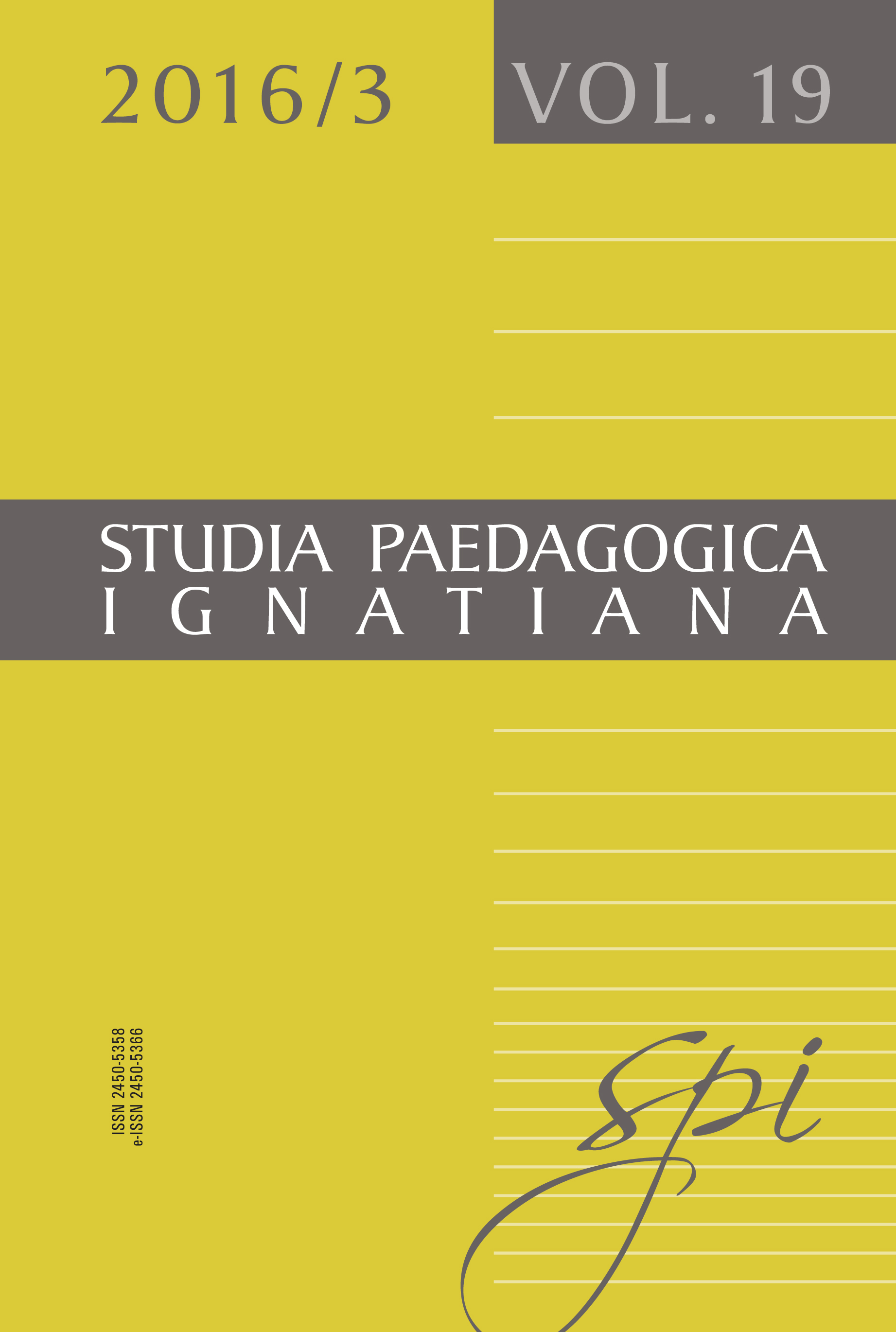Wstęp
DOI:
https://doi.org/10.12775/11670Abstract
Mówienie i pisanie o historii jest przejawem tworzenia ciągłości tradycji, wyrażającym się w ukazywaniu określonych nurtów myślenia i działania w poszczególnych epokach. Można powiedzieć, używając słów Adama Asnyka zawartych w wierszu Do Młodych, że „Każda epoka ma swe własne cele”. Przypominanie ich (celów, ideałów) jest wyrazem pisania owej ciągłości historii idei, przy czym także idei edukacyjnych.
Źródłem każdego działania jest myśl. Poszukiwanie genezy myśli ludzkiej, w tym myśli edukacyjnej, jest próbą odpowiedzi na pytanie: po kim dziedziczymy określone idee, zasady, wartości, kto jest ich twórcą i kontynuatorem? Tym samym, przy takim założeniu badań historycznych, zostaje potwierdzona słuszność przesłania, którego twórcą był Ralph W. Emerson, amerykański poeta i eseista, nazwany przez Adama Mickiewicz amerykańskim Sokratesem. R.W. Emerson przekonywał, że „Tylko ci, którzy budują na ideach, budują dla wieczności. Ten sam autor rozważając kwestie ważności instytucji społecznych był zdania, że „Żadna instytucja nie może być lepsza od swego twórcy”[1]
R.W. Emerson, Myśli, Lublin 1997, s. 112.
References
R.W. Emerson, Myśli, Lublin 1997, s. 112.
Mądrość mówi przyciszonym głosem. Aforyzmy austriackie, wybór i przedsłowie S.H. Kaszyński, Poznań 2000, s. 43.
M. Kula, Nośniki pamięci historycznej, Warszawa 2002, s. 275–284.
H. Elzenberg, Kłopoty z istnieniem, Aforyzmy w porządku czasu, Kraków 1963, s. 250.
Downloads
Published
How to Cite
Issue
Section
License
By submitting an article, the author declares that:
they are the author of the article (hereinafter referred to as the Work) and:
- is entitled to exclusive and unlimited copyright to the Work,
- is entitled to dispose of the copyrights to the Work.
The Author grants the Jesuit University Ignatianum in Cracow a free, non-exclusive, territorially unlimited license to use the Work in the following fields of exploitation:
- publishing the Work in paper, digital or magnetic form;
- multiplying the work by any method, without limiting the number of editions or copies;
- distribution of the work and its copies in any form, including marketing, sales, lending, and lease;
- placing the work in a computer memory;
- distribution of the work in information networks, including the Internet;
- public performance, exhibition, display, reproduction, broadcasting and re-broadcasting, as well as making the Work available to the public in such a manner that everyone could have access to it at a time and place chosen by themselves;
- within the scope of dependent rights to the Work, covering, in particular, the right to make necessary changes to the Work, resulting from editorial and methodical preparation, as well as to make translations of the Work into other languages.
The license right shall be transferred the moment of transfer of the Work to the Jesuit University Ignatianum in Cracow. The Jesuit University Ignatianum in Cracow is entitled to grant sub-licenses to the Work in terms of the right granted. The license shall be limited in time for a period of 15 years from the date it is granted.
Stats
Number of views and downloads: 288
Number of citations: 0



